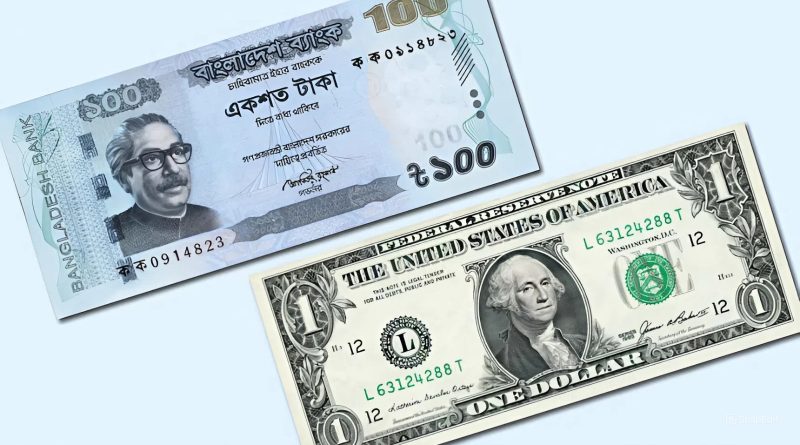After years of steady depreciation, the Bangladeshi taka rebounded in July, appreciating 0.39 percent to Tk 122.3 per US dollar. The gain marks a rare break in the currency’s downward trend and carries implications for trade, remittance, and inflation.
The local currency had depreciated by 3.89 percent in FY2025 and 8.17 percent in FY2024, making the July rebound a sharp contrast.
Why the Rebound Happened
Economists and central bankers point to a mix of domestic and global factors. The U.S. dollar has weakened worldwide as investors questioned its stability amid President Trump’s chaotic tariff actions. At the same time, Bangladesh saw robust remittance inflows, weak private-sector credit growth — below 7 percent in June — and subdued import demand.
“Our reserves are in good shape, import demand is low, and so the taka appreciated,” said a central banker. Bangladesh Bank also purchased about $700 million through August, helping strengthen its position.
By August, foreign-exchange reserves stood at $30.83 billion in gross terms, or $25.82 billion under the IMF’s BPM6 measure.
Policy Shift and IMF Link
The central bank’s move in May toward a more flexible exchange-rate regime — a requirement under the $4.7 billion IMF loan package — has also been credited with making the currency more responsive to market forces.
Winners and Losers
A stronger taka makes imports cheaper, which could ease inflation in an import-dependent economy. But it also makes exports and remittance earnings less attractive, squeezing exporters and families relying on foreign income.
One economist observed: “Dollar demand has weakened as private investment stalled. Imports tied to capital machinery have slumped.”
He also cautioned that the central bank’s interventions might be counterproductive, arguing that allowing the exchange rate to fall further could have helped contain inflation.
Global Undercurrents
Globally, the dollar has lost value this year, pushing many investors toward gold and other currencies such as the euro. Analysts say the U.S. administration’s unpredictable trade policies have accelerated the shift.
What’s Next
While some analysts believe the taka’s rebound may relieve inflationary pressure, others warn it may not last unless investment and exports recover.






